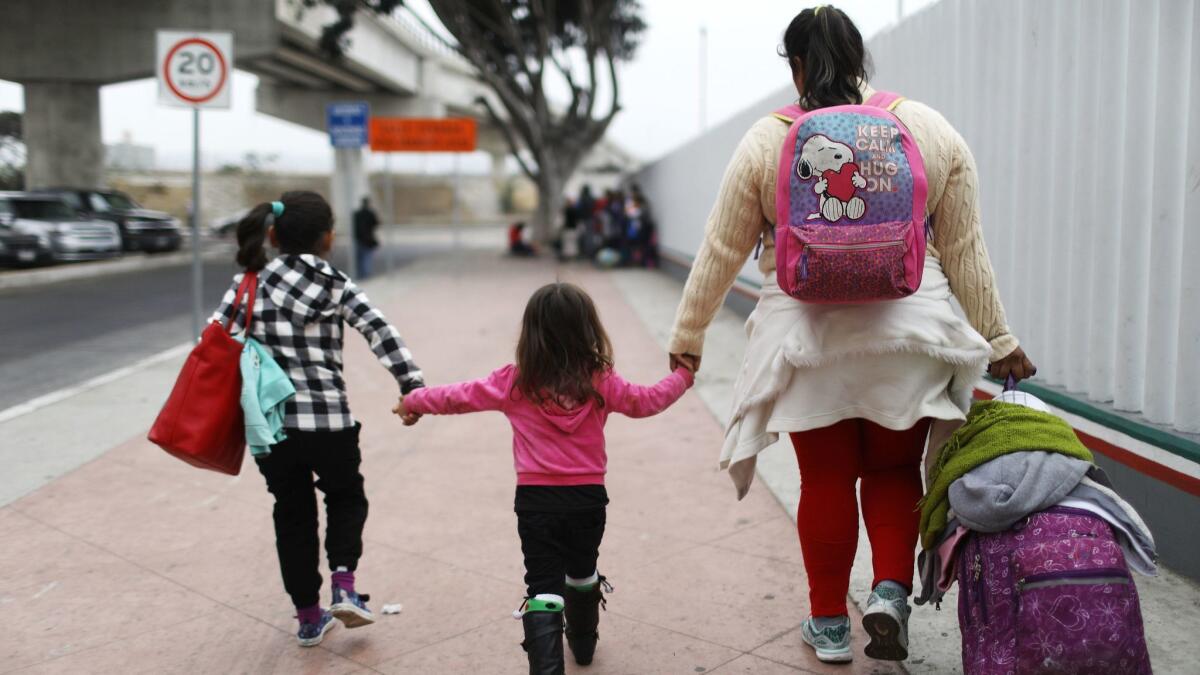Readers React: Before ripping apart migrant families, the U.S. helped destabilize their home countries

To the editor: It’s important to remember that those surging north toward our border are fleeing more than just homegrown turmoil and poverty; they are also fleeing the destabilizing legacy of generations of U.S. economic imperialism, military intervention and brutal suppression of progressive aspirations.
We norte-americanos make a habit of forgetting these unpleasant parts of our history, and we treat the people fleeing the consequences of our shameful actions like unwanted children. The ultimate insult to the dignity of those seeking refuge among us is to demonize them for daring to strive toward the sort of privileged life we’ve enjoyed.
The latest chapter in our nation’s history is being written now; will it be a something future generations can be proud of, or something they’ll struggle to forget?
Brian Bennett, La Verne
..
To the editor: Yielding to national outrage, President Trump abandoned his policy of ripping children away from their parents. However, this won’t solve the immigration problem, because the solution would condemn over 100 years of American foreign policy.
That policy has been to support the upper classes, however corrupt and violent their rule, and to crush uprisings against these oligarchs, as we did in Guatemala, Nicaragua, Haiti and elsewhere. Those terrified refugees are fleeing societies permeated with violence and corruption.
We love to talk about how we promote human rights and democracy abroad, but as soon as some of these countries become democratic, we crush their regimes. We want our plutocracy to be a global model.
The solution to the immigration problem — supporting governments that care for their people — would violate a century-old tradition of helping oligarchies.
Roger Carasso, Santa Fe, N.M.
The writer is a professor emeritus of political science at Cal State Northridge.
Follow the Opinion section on Twitter @latimesopinion and Facebook
More to Read
A cure for the common opinion
Get thought-provoking perspectives with our weekly newsletter.
You may occasionally receive promotional content from the Los Angeles Times.






